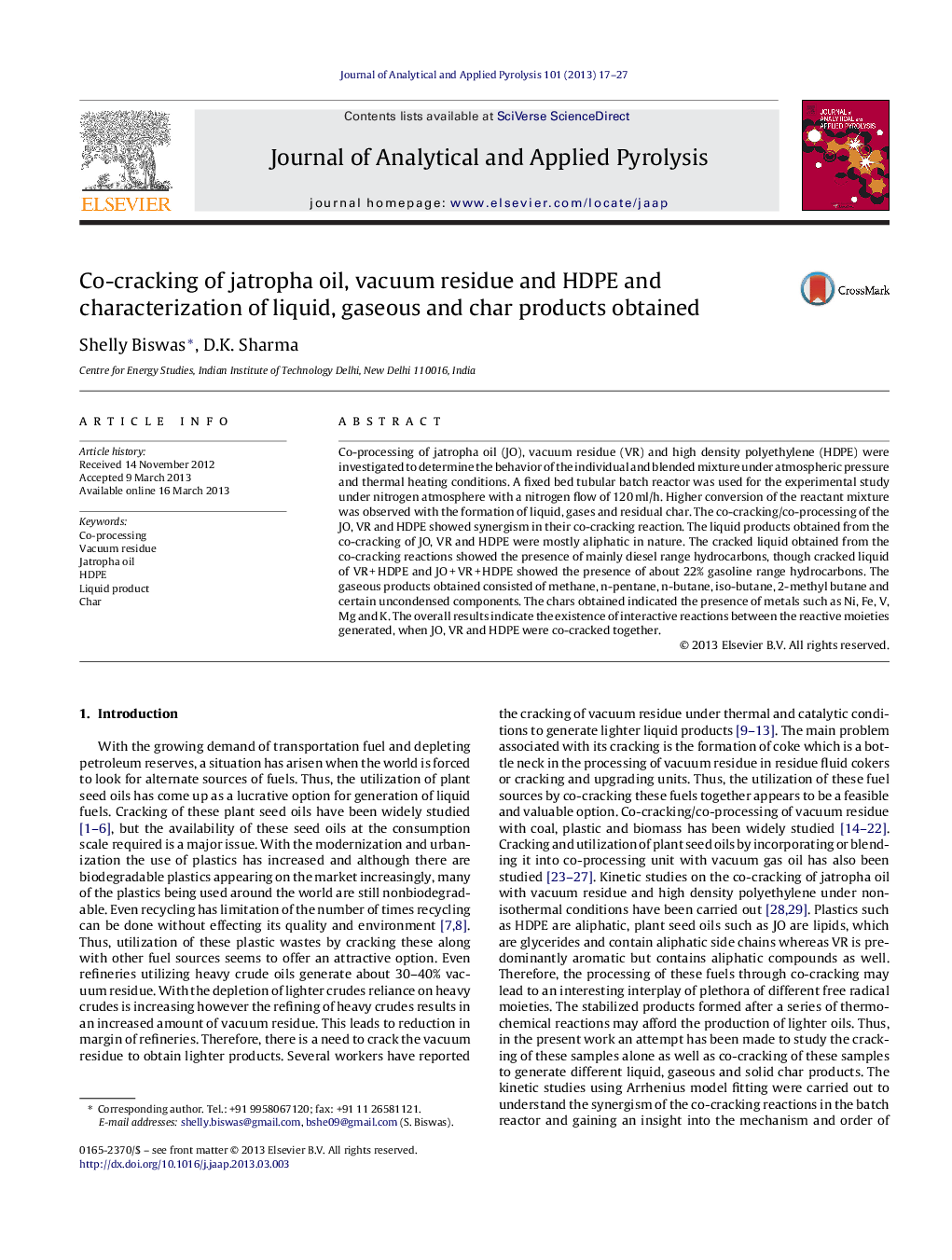| کد مقاله | کد نشریه | سال انتشار | مقاله انگلیسی | نسخه تمام متن |
|---|---|---|---|---|
| 1197454 | 1492976 | 2013 | 11 صفحه PDF | دانلود رایگان |

• Co-cracking of jatropha oil, vacuum residue and high density polyethylene.
• The cracked liquid obtained from the co-cracking reactions showed the presence of mainly diesel range hydrocarbons.
• The gaseous products obtained consisted of methane, n-pentane, n-butane, iso-butane, 2-methyl butane and certain uncondensed components.
• The existence of interactive reactions between the reactive moieties generated, when JO, VR and HDPE were co-cracked together.
Co-processing of jatropha oil (JO), vacuum residue (VR) and high density polyethylene (HDPE) were investigated to determine the behavior of the individual and blended mixture under atmospheric pressure and thermal heating conditions. A fixed bed tubular batch reactor was used for the experimental study under nitrogen atmosphere with a nitrogen flow of 120 ml/h. Higher conversion of the reactant mixture was observed with the formation of liquid, gases and residual char. The co-cracking/co-processing of the JO, VR and HDPE showed synergism in their co-cracking reaction. The liquid products obtained from the co-cracking of JO, VR and HDPE were mostly aliphatic in nature. The cracked liquid obtained from the co-cracking reactions showed the presence of mainly diesel range hydrocarbons, though cracked liquid of VR + HDPE and JO + VR + HDPE showed the presence of about 22% gasoline range hydrocarbons. The gaseous products obtained consisted of methane, n-pentane, n-butane, iso-butane, 2-methyl butane and certain uncondensed components. The chars obtained indicated the presence of metals such as Ni, Fe, V, Mg and K. The overall results indicate the existence of interactive reactions between the reactive moieties generated, when JO, VR and HDPE were co-cracked together.
Journal: Journal of Analytical and Applied Pyrolysis - Volume 101, May 2013, Pages 17–27